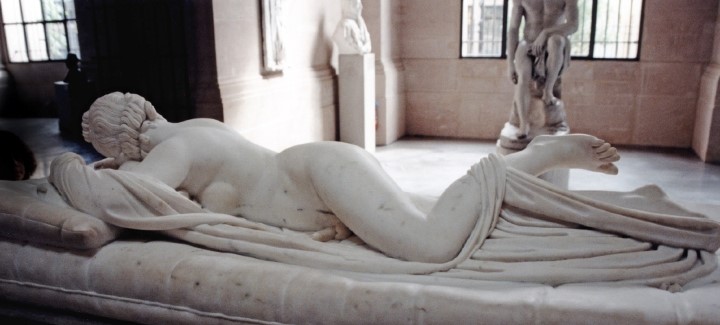The government’s ‘Prevent’ strategy sees the sudden psychological ‘radicalisation’ of vulnerable children and young people as the cause of today’s apparently meaningless acts of terrorism. It has turned teachers and lecturers into spies looking out for signs of ‘radicalisation’ including signs of unusual behaviour and mental illness. ‘Prevent’ has many critics who often condemn it as ‘Islamophobic’ for targeting Muslims, while its supporters claim that the aim is to prevent terrorism in all its forms including that of extreme right or ‘Fascist’ groups and that of individual fanatics. Continue reading
Knowledge versus Skills: the great education debate 2016
Do we want children to learn ‘the best that has been known and thought in the world’ or do we want them to have the skills necessary for work and life in the 21st Century? Why impose an elite, Victorian curriculum on children today? Children need to be empowered to unleash their creativity and to develop the soft skills for a new world and a new workplace. Do really need latter day Gradgrinds pouring ‘facts’ into empty vessels and then examining them? Continue reading
The autumn programme 2016
The East Midlands Salon is taking a summer break but will be back in the autumn with a whole new programme. We begin with a special event in September:
Wednesday 28 September – What is the role of a Salon in the 21st Century? Continue reading
Every Cook Can Govern: the life, work and impact of C.L.R. James
Our unique June Salon is the Midlands’ premiere of Every Cook Can Govern, the first feature-length documentary to explore the life, writings and politics of the great Trinidad-born revolutionary C.L.R. James who died in Brixton in 1989. Continue reading
The morality of tourism
From the 1960s, tourism was encouraged as an unquestionable good. With the arrival of package holidays and charter flights, tourism could at last be enjoyed by the masses. The UN even declared 1967 ‘International Years of the Tourist’, and recognised tourism was as ‘a basic and most desirable human activity, deserving the praise and encouragement of all people’s and all governments’.
Today, however, tourism is no longer seen in such a positive light. Since the 1990s there’s been growing criticism of the tourist industry, and tourists themselves. Continue reading
Is ’empowerment’ empowering?
‘Empowerment’ is a term in widespread use today and one that is often considered to be a self-evident good. In this talk Ken McLaughlin will explore its emergence in the 1960s through to its rise in the 1990s and ubiquity in present day discourse in education, social work and health and social care discourse. He will examine how it constructs and positions those being empowered and those empowering and will argue that a focus on empowerment has superseded the notion of political subjects exercising power autonomously.
Date and time: Tuesday 26 April at 7 PM
Venue: The Hallmark Midland Hotel, Derby
Tickets: £5 waged / £3 unwaged available on Eventbrite or at the door.
Parenting, neuroscience and the state
David Cameron argues he wants parents to see parenting classes as ‘aspirational’. He and others involved in policy making across the political spectrum argue there is a pressing need for more and more such early intervention in the lives of children, starting in-utero. This is where the opportunity exists to make lives better, or impair them for good, they say, claiming neuroscience tells us this is true. Continue reading
Is there a ‘rape culture’ or is it a dangerous myth?
It is now an accepted view that we live in a society in which misogyny and everyday sexism have created a so-called ‘rape culture’, in which rape is pervasive, under-reported and ignored. Luke Gittos – our speaker – does not believe that the police and the law courts are failing women by failing to convict rapists. On the contrary, he will argue that the obsession with a ‘culture of rape’ has seriously distorted our view of sexual violence, and that the expansion of laws to protect women is eroding areas of privacy and inviting state regulation of our most intimate affairs.
This is dangerous for us all – not just men who may find themselves dragged into court following a sexual encounter they believed was consensual. The drive to prosecute (and improve conviction rates against) more and more people has dangerous implications for the fundamental principles of justice, and for basic freedoms. The situation as things stand does no one any favours: it undermines society’s ability to deal adequately with extreme assault, and it undermines our ability to live intimately with one another.
Can a boy grow up to be a woman?
 ‘Bruce Jenner, Lana Wachowski and Chelsea Manning all made the news recently by coming out as trans. This wave of high-profile cases prompted feminist campaigner Julie Bindel to condemn the prescription of hormone blockers to prospective trans kids as ‘child abuse’. She was widely censured as a result.
‘Bruce Jenner, Lana Wachowski and Chelsea Manning all made the news recently by coming out as trans. This wave of high-profile cases prompted feminist campaigner Julie Bindel to condemn the prescription of hormone blockers to prospective trans kids as ‘child abuse’. She was widely censured as a result.
Continue reading
East Midlands Salon Programme Spring 2016
The East Midlands Salon Programme for the New Year brings ‘controversial views’ to Derby. Please put these dates in your diary:
Tuesday 26 January 2016 ‘Can a Boy Grow Up To Be a Woman?’ Speaker: Chrissie Daz: cabaret performer, teacher and, author. Chrissie is currently completing a book on transgender and gender variant identity. Continue reading